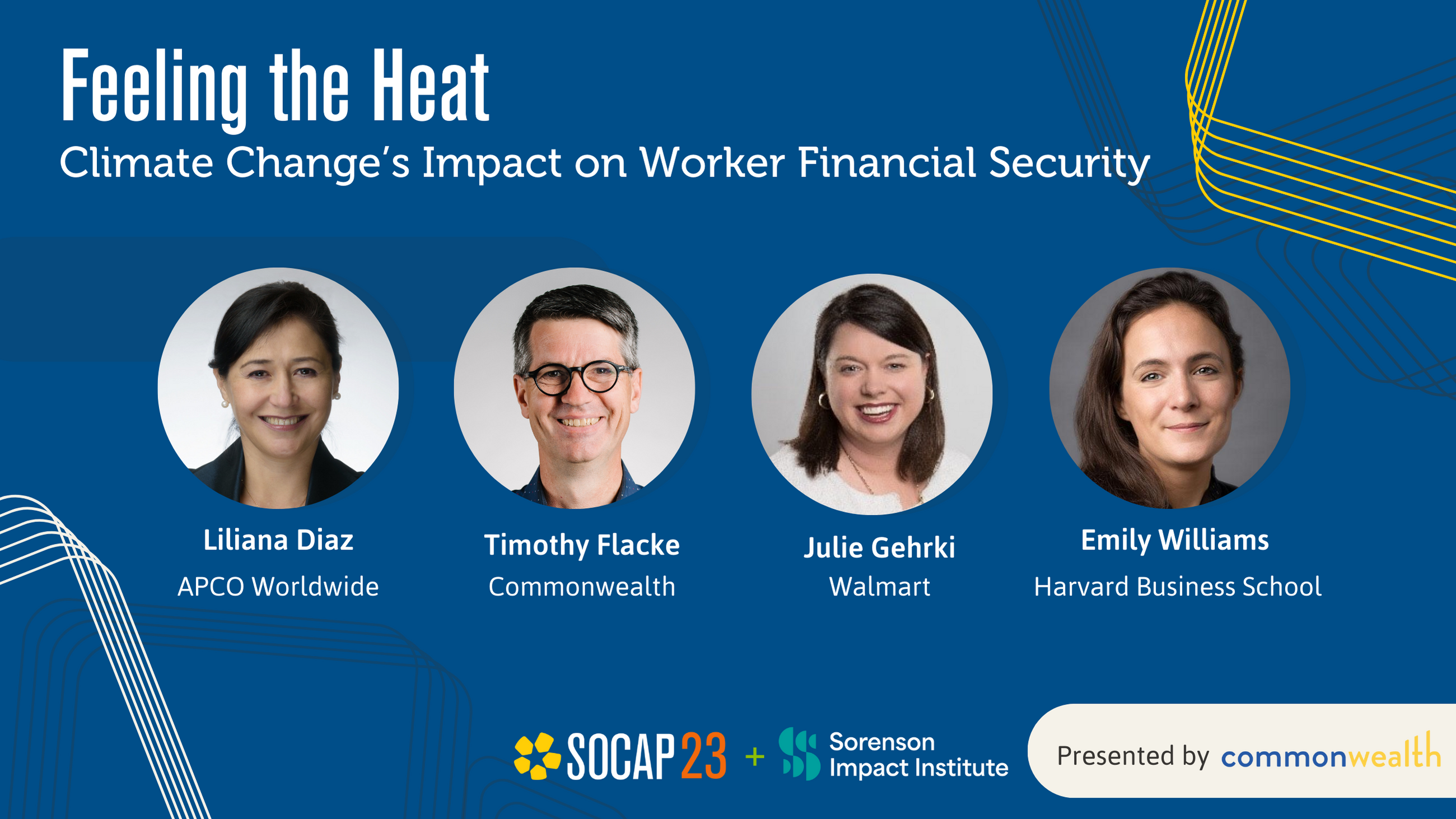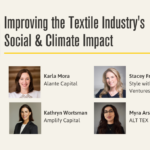New Report Examines How Severe Weather Events Affect U.S. Employees and Businesses
The accelerating effects of climate change pose wide-ranging challenges and risks for businesses and their workforces. As severe weather events tied to climate change grow more frequent and costly, companies are exploring new partnerships and programs to mitigate the impact and support their employees and other stakeholders, including investors, customers, and communities.
A newly released study from Commonwealth serves as a resource for business leaders and others seeking more information on the implications of climate change on workers’ financial security and companies’ resiliency. Severe heat and other weather events have broader economic implications as well, with research showing the United States economy loses an average of $100 billion a year due to heat-induced declines in labor productivity. These effects often hit hardest in industries like agriculture, construction, manufacturing, and service sectors.
To build on the study’s release, Commonwealth and SOCAP hosted a webinar discussion with representatives from business and academia with knowledge of climate change’s effects on workers and the economy. Timothy Flacke, Co-Founder and Executive Director of Commonwealth, moderated the discussion with Liliana Diaz of APCO Worldwide, Julie Gehrki of Walmart and the Walmart Foundation, and Emily Williams of Harvard Business School.
Flacke said the Commonwealth study confirmed the scope of climate change concerns, with more than 80% of survey respondents across America saying they see extreme and unusual weather events becoming more common. These events have a range of financial implications for businesses and workers and how they’re able to get their everyday work done. “In reality, climate change is also having more subtle but very significant long-term impacts for employees,” Flacke said, including flooding that affects infrastructure and rolling blackouts that affect remote workers.
At Harvard, Williams and others are examining vast amounts of data — from local daily temperatures across the U.S. to bank account transactions — to inform their research on the financial impact of extreme temperatures. “We think it’s really important to document these perhaps more pervasive but less visible effects of climate change,” she said. “We’re trying to understand how this type of climate change is impacting household financial security.”
Williams said several factors may contribute to income declines and health risks among some employees. An early analysis has found that extreme weather with high temperatures and humidity levels especially affects lower-income workers, who are more likely to encounter bank overdraft fees and less able to afford higher utility costs for air-conditioning.
In her consulting work, Diaz partners with corporations to shape climate action and paths toward net zero emissions. These actions are spurred in part by investor attention to risks, she said. “The conversation around climate action at the corporate level resulted from concerns from the investor community,” Diaz said. “The focus of the conversation is always on the cost, both the climate impacts represented as well as the cost that decarbonization may entail for a corporation.”
Business leaders already see how extreme weather can affect their bottom line and their workers’ finances. “The simple truth is that productivity falls as temperatures increase,” Diaz said. Increasingly, corporate leaders are seeing both the social and environmental imperatives for climate action, she said. “Understanding how climate risks impact human capital is gaining traction,” she said. “A successful transition (to net zero) needs to be a just transition.”
As a large-scale retailer and employer, Walmart plays a role in thousands of communities and touches the lives of millions of people across the United States. In fact, Gehrki said, 90% of Americans live within 10 miles of a Walmart. “That means these community disasters — whether they’re a flooded road, a water shortage, or a hurricane — are part of something our customers and associates are facing,” she said. “Being able to address that and think about it and prepare … is actually a really essential part of our core business resiliency.”
When sudden severe weather events occur, Walmart has plans in place to assist with disaster relief and community resilience, Gehrki said. “It starts before the disaster hits in getting thoughtful, good information to associates in the path of disaster about how they can prepare,” she said. “Once it hits, the first thing we do is activate health and safety calls” to check on workers.
In the aftermath of hurricanes and other weather events, Walmart provides workers with support, including financial assistance during evacuations and disaster pay if stores are closed. For the broader community, Gehrki said Walmart parking lots can serve as the site of resource centers where they can apply for federal emergency aid and access mental health and other services.
Watch the full conversation: Feeling the Heat: Climate Change’s Impact on Worker Financial Security
Speakers:
Liliana Diaz, Senior Director, Climate & Biodiversity, APCO Worldwide
Julie Gehrki, Vice President, Philanthropy, Walmart and Walmart Foundation
Emily Williams, Assistant Professor of Business Administration, Harvard Business School
Timothy Flacke, Co-Founder and Executive Director of Commonwealth







